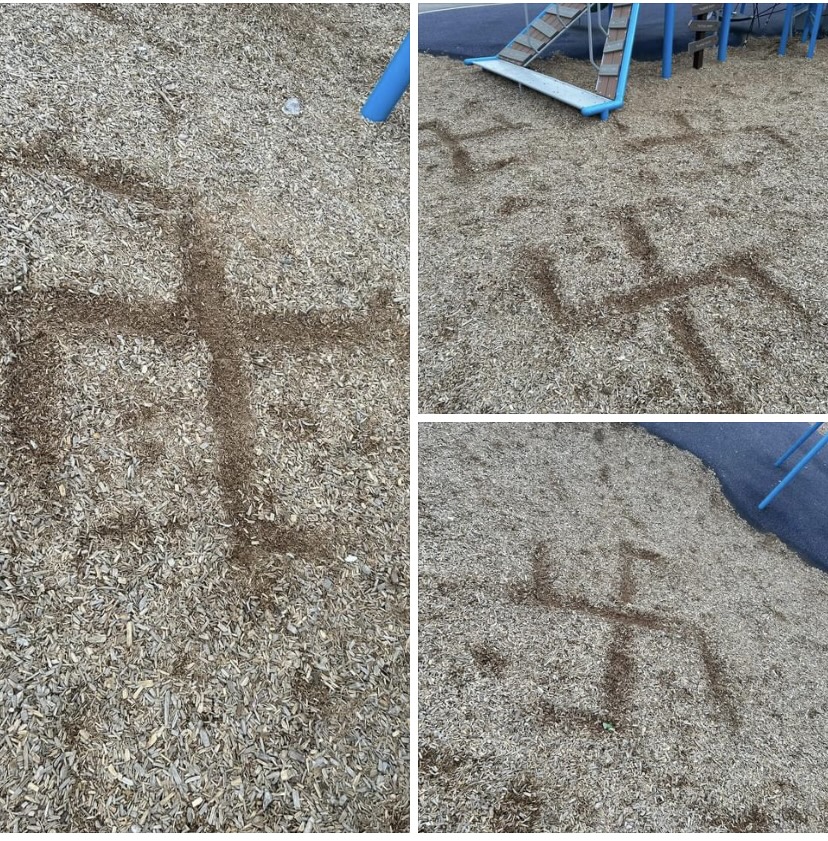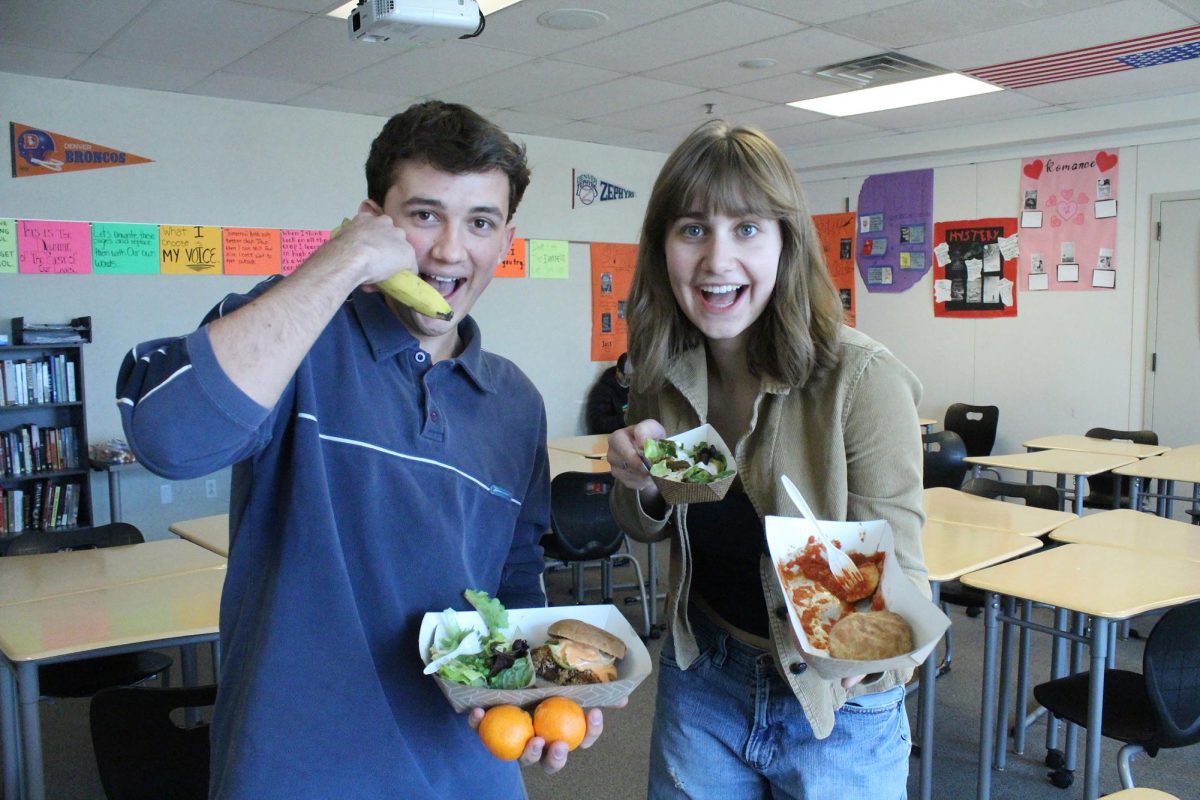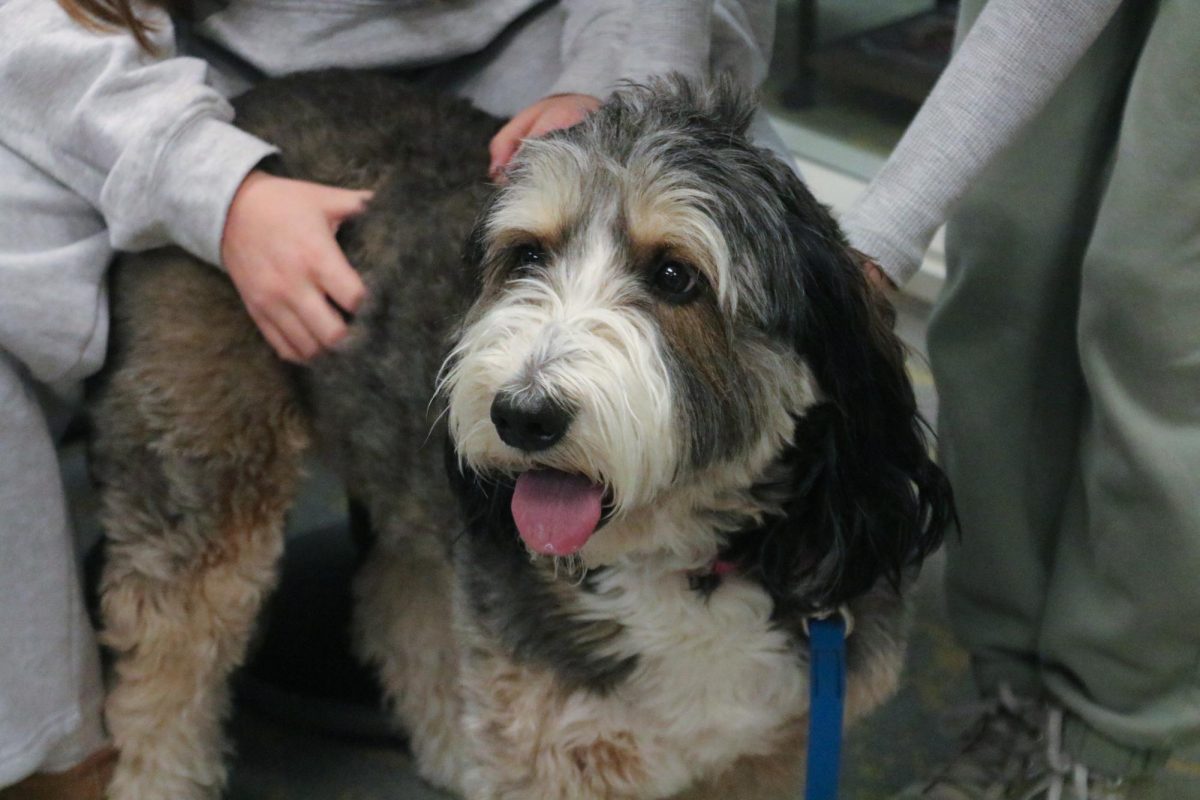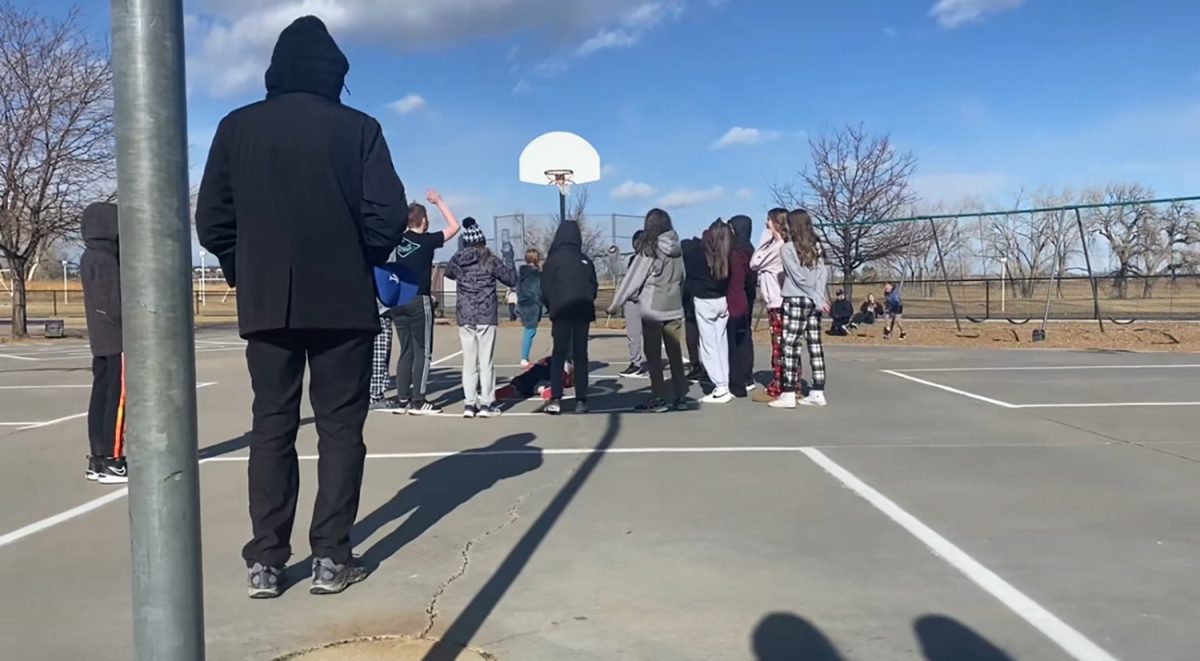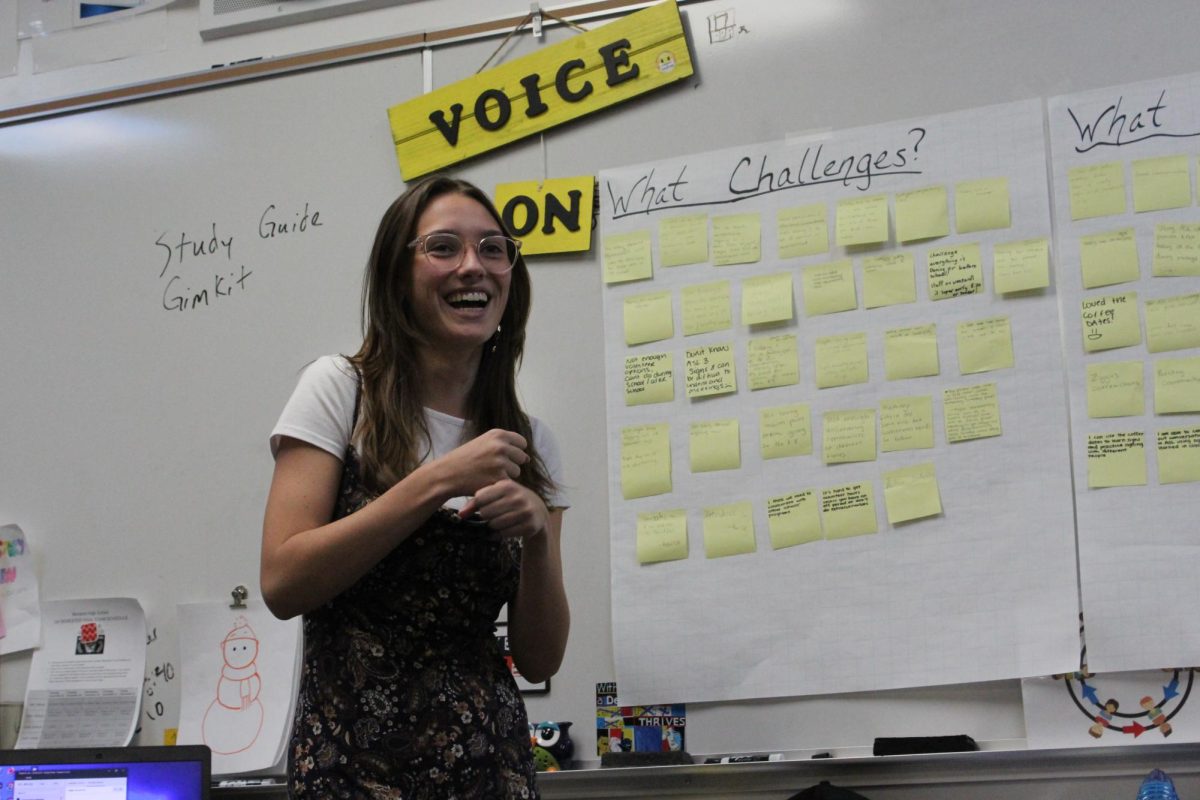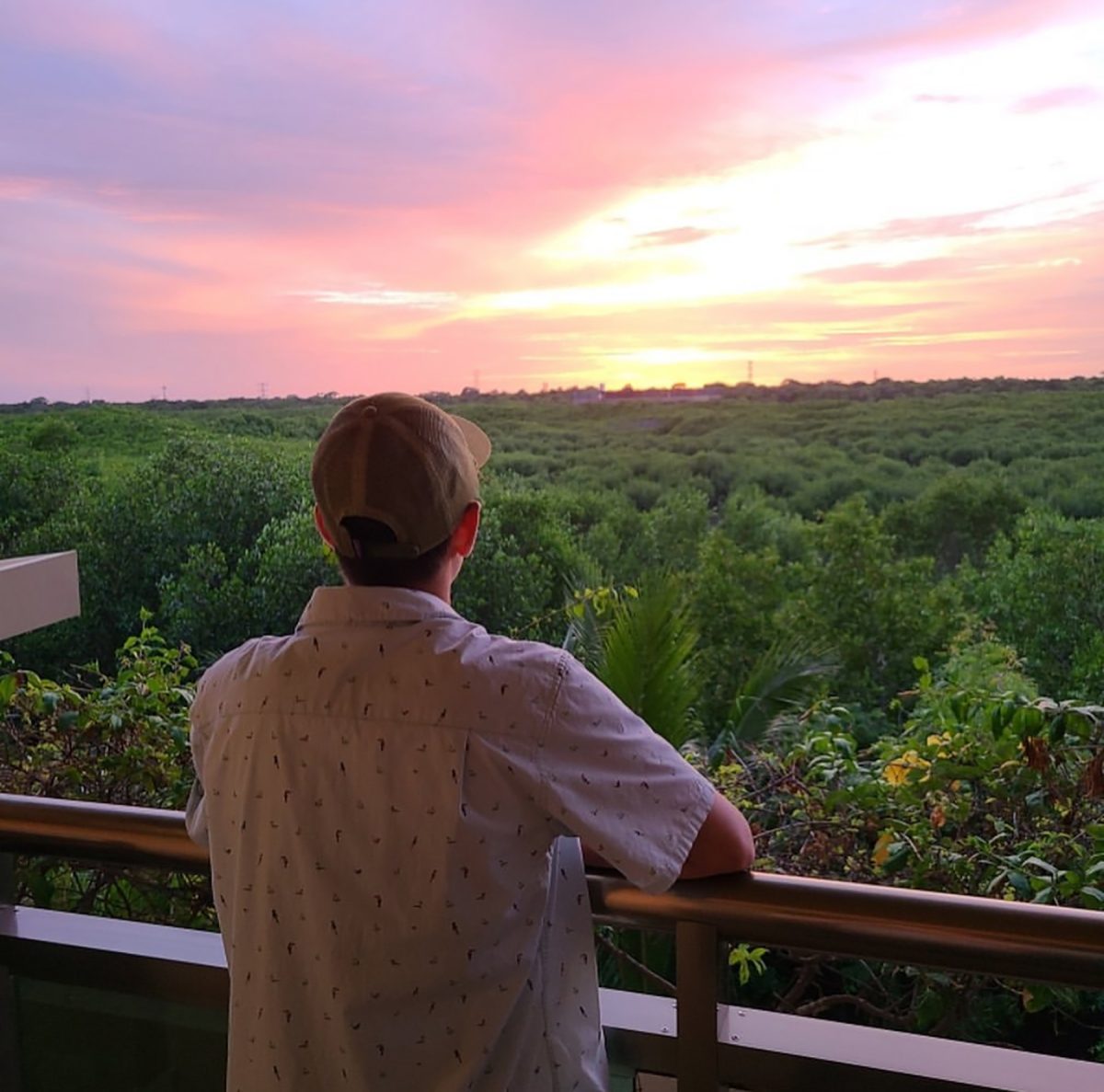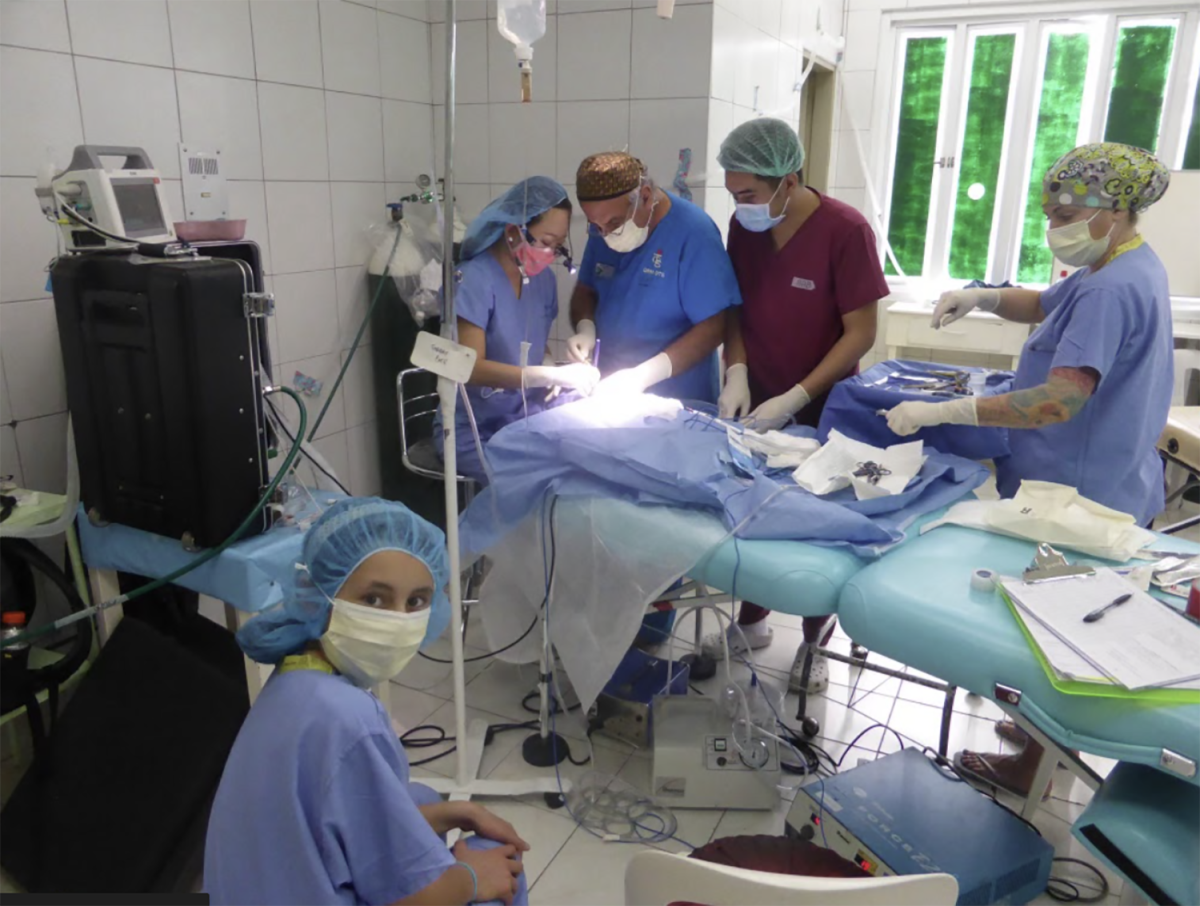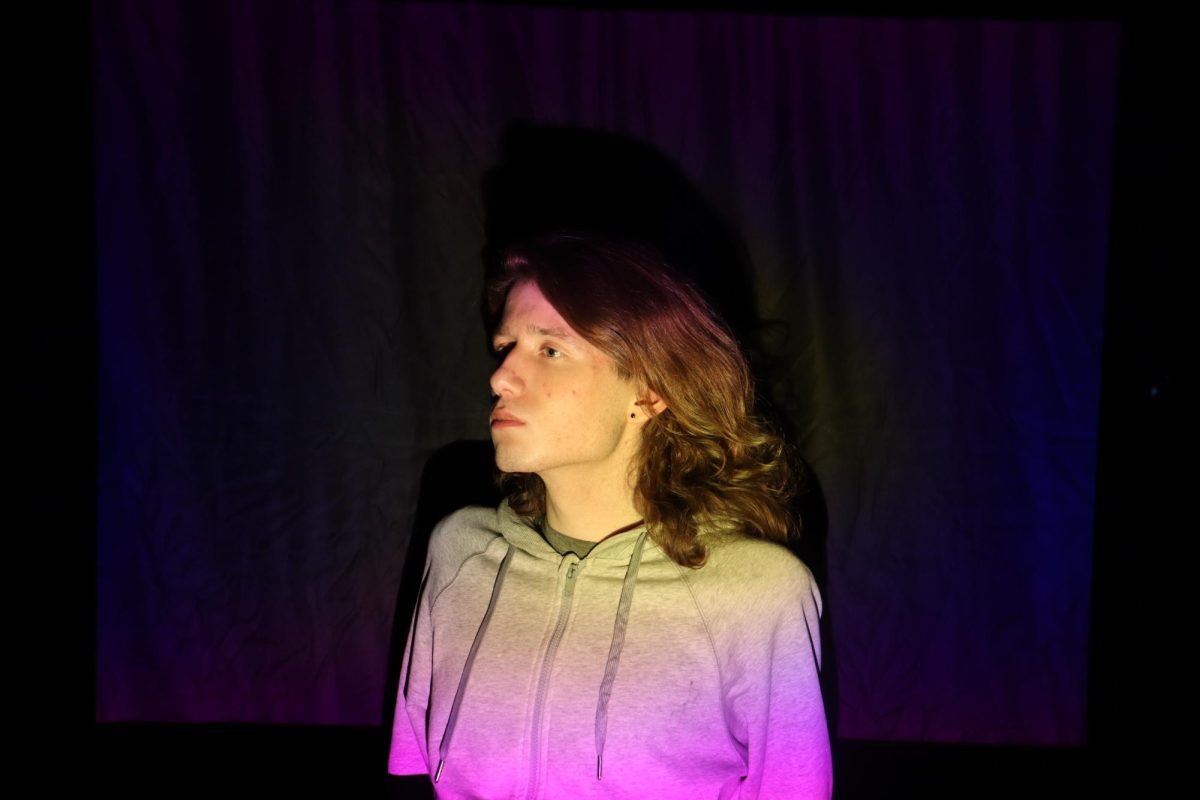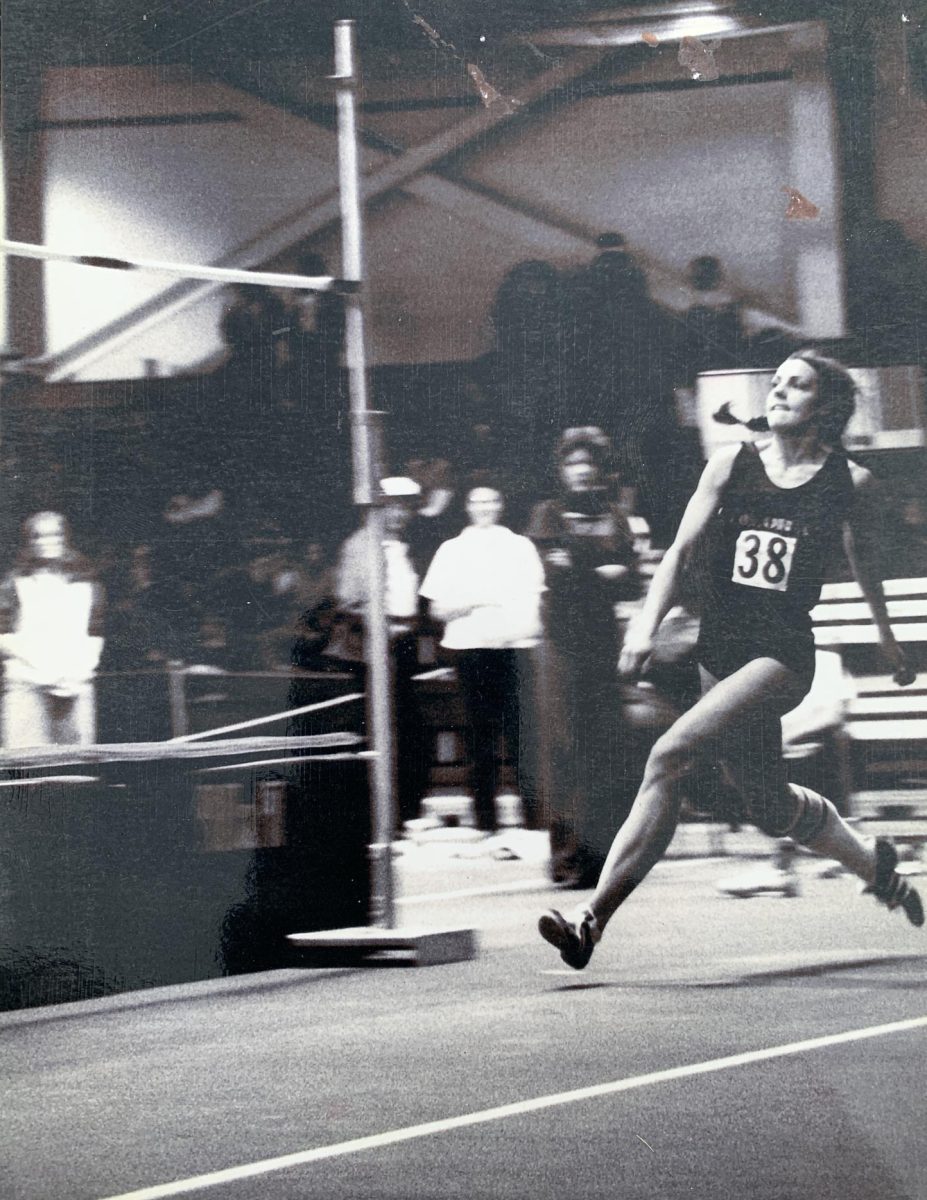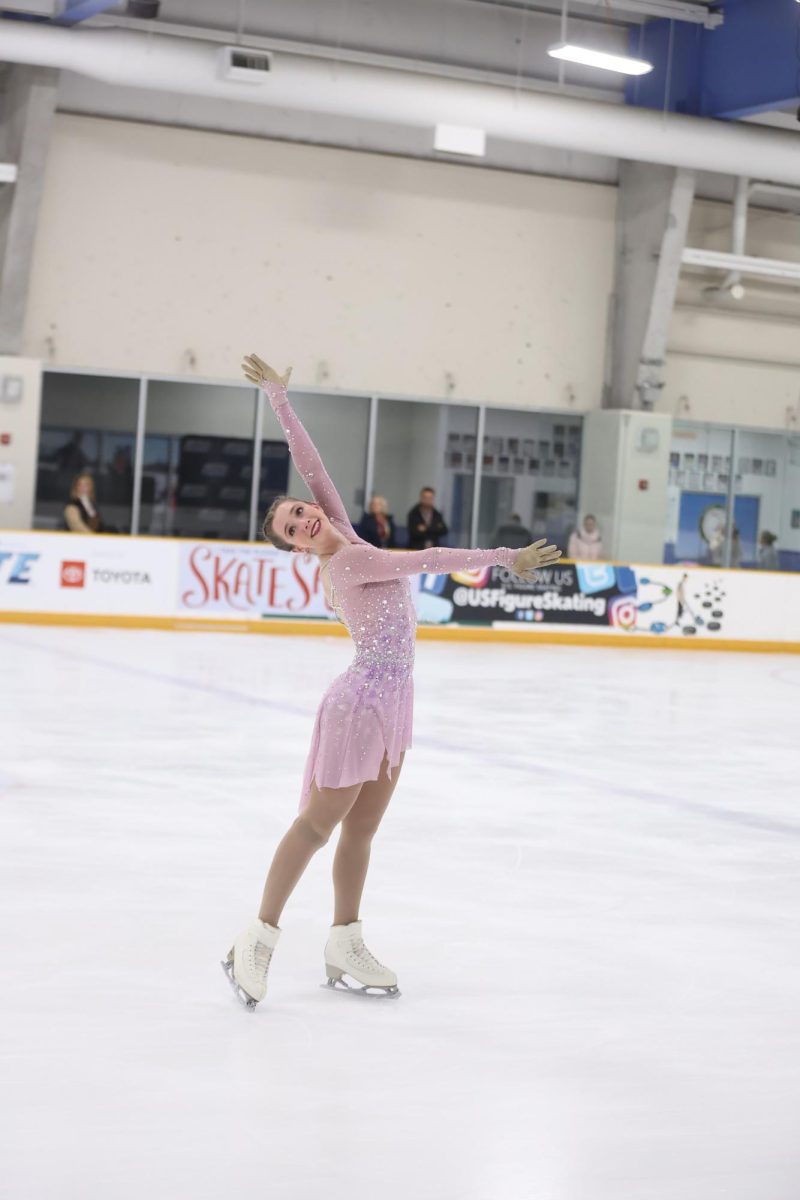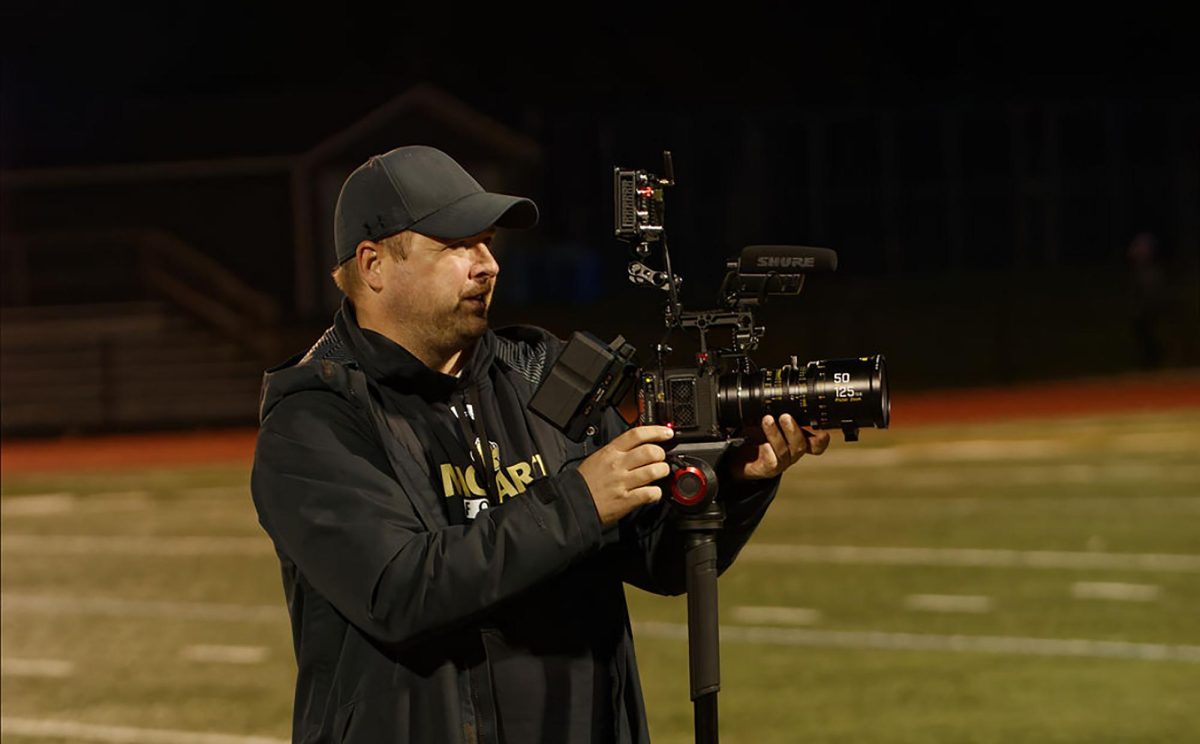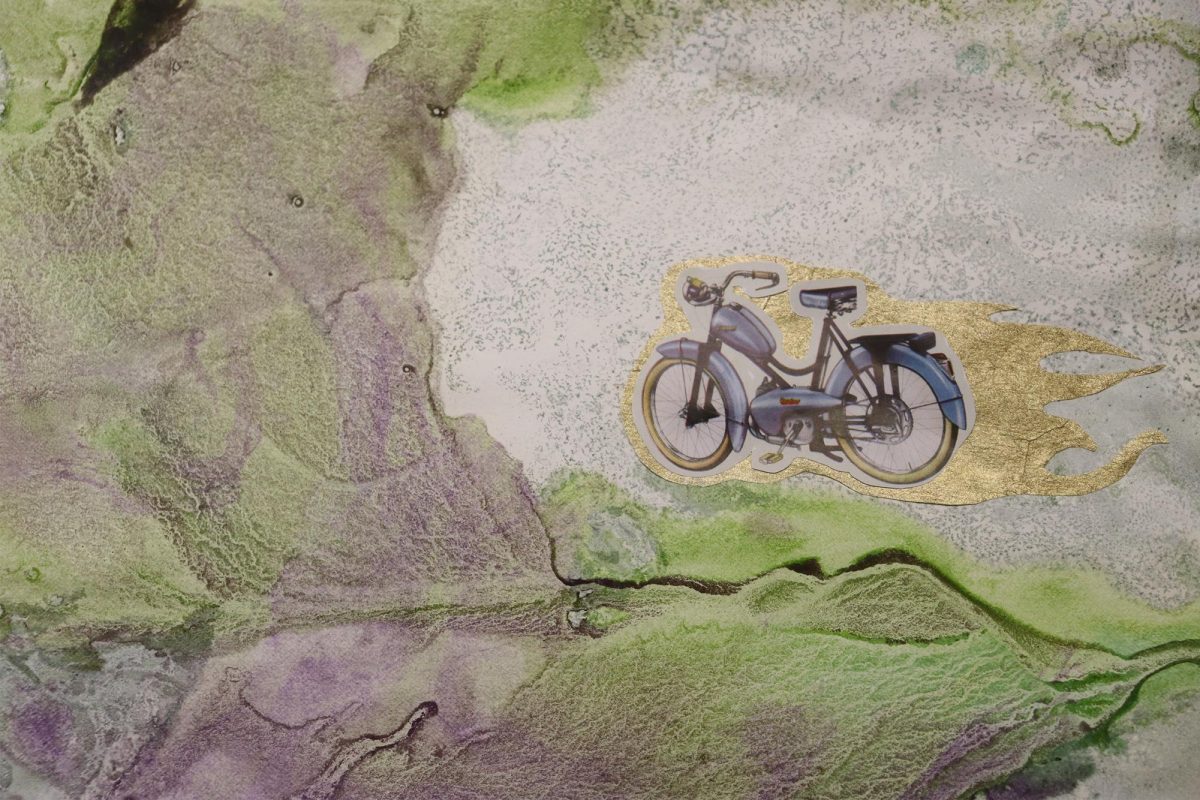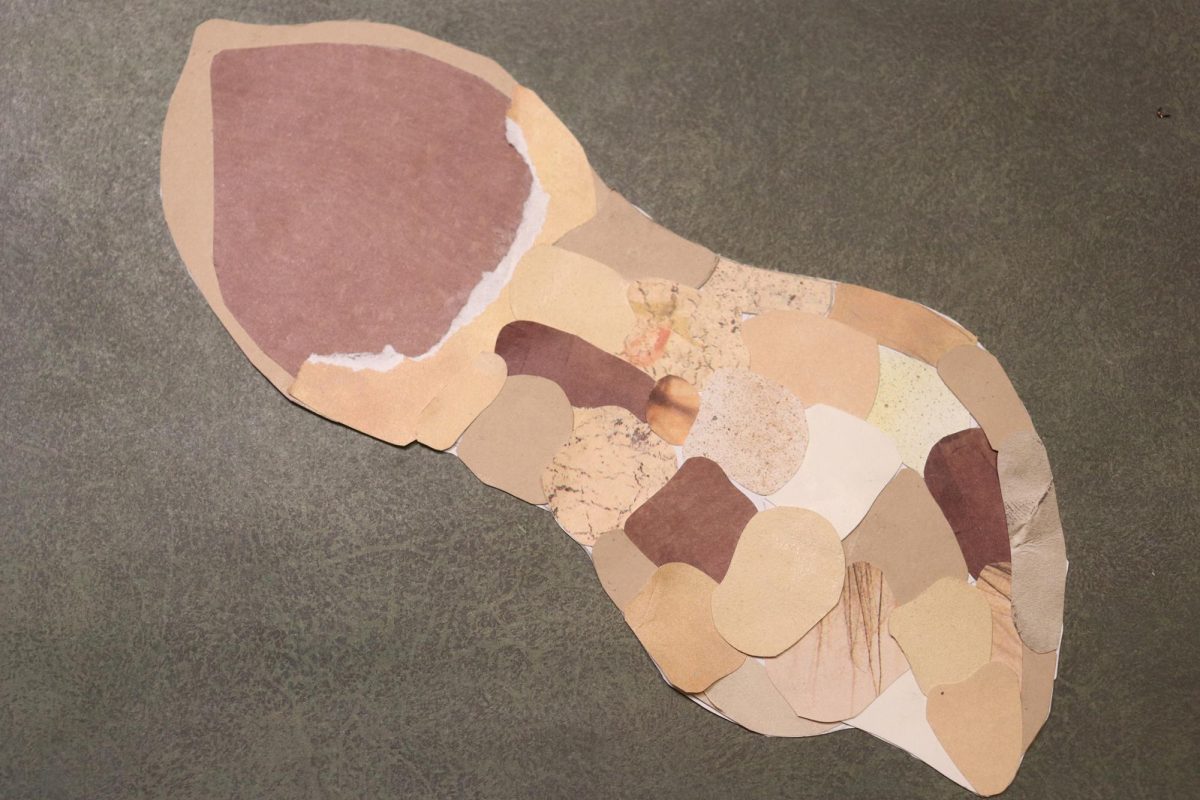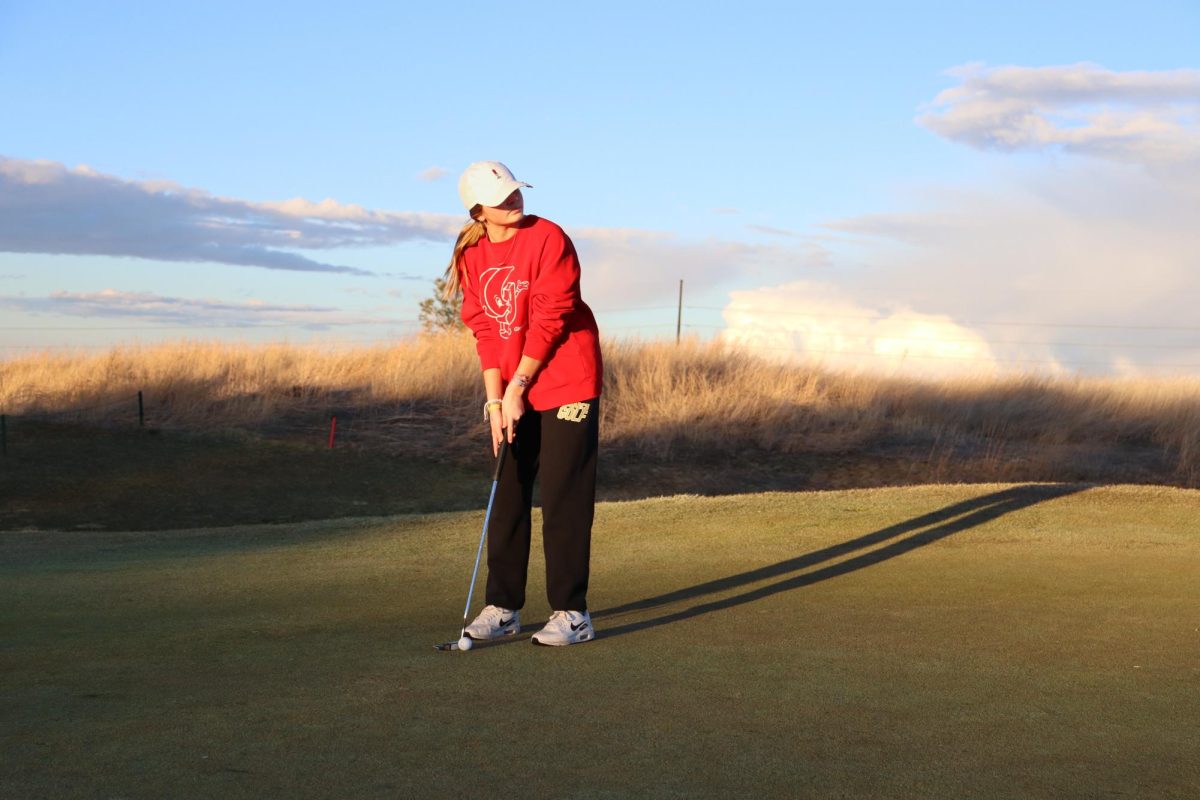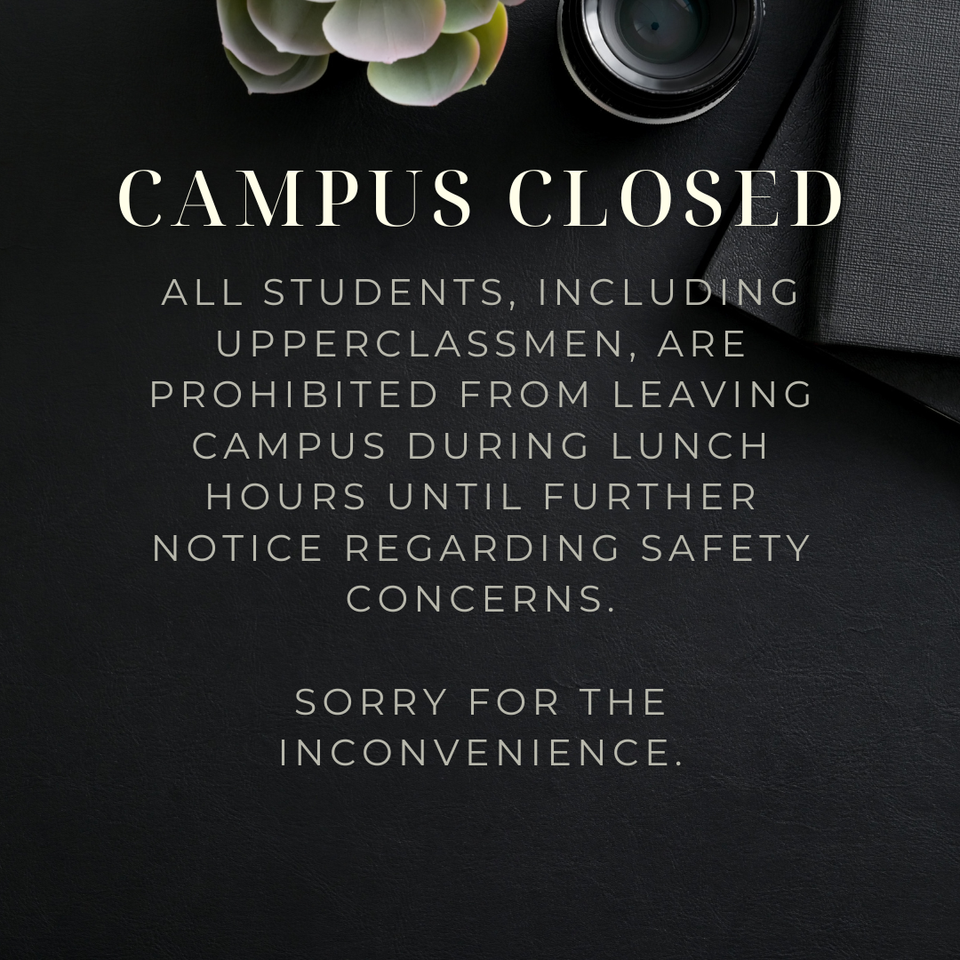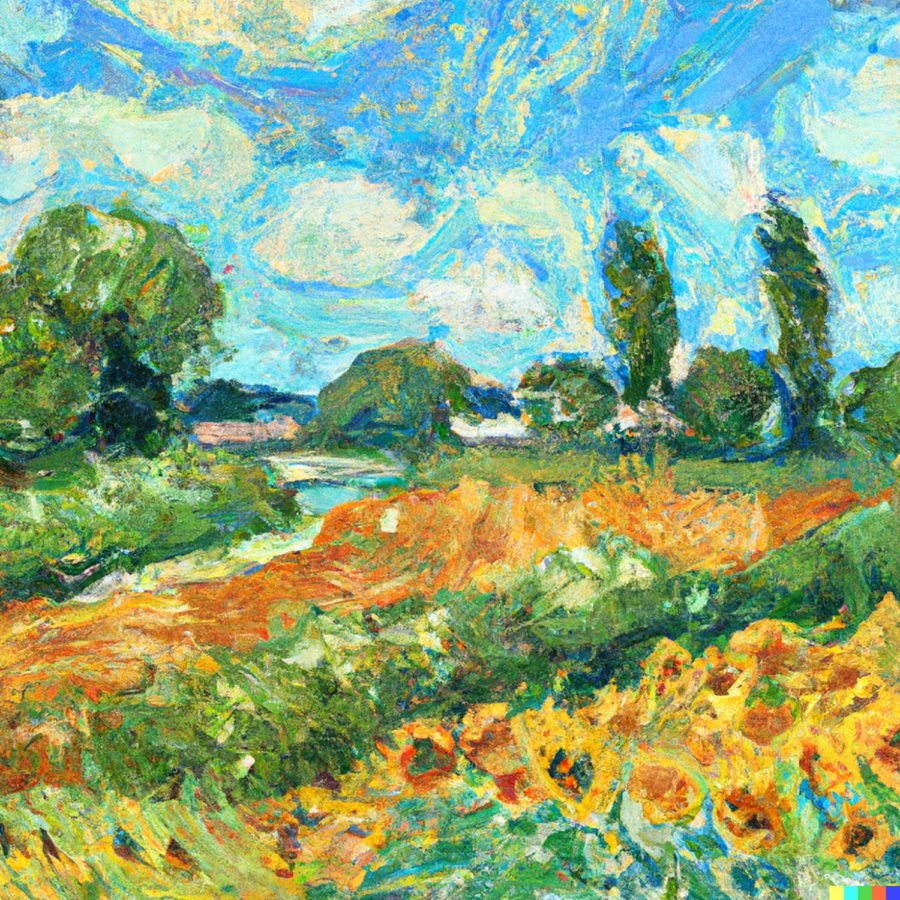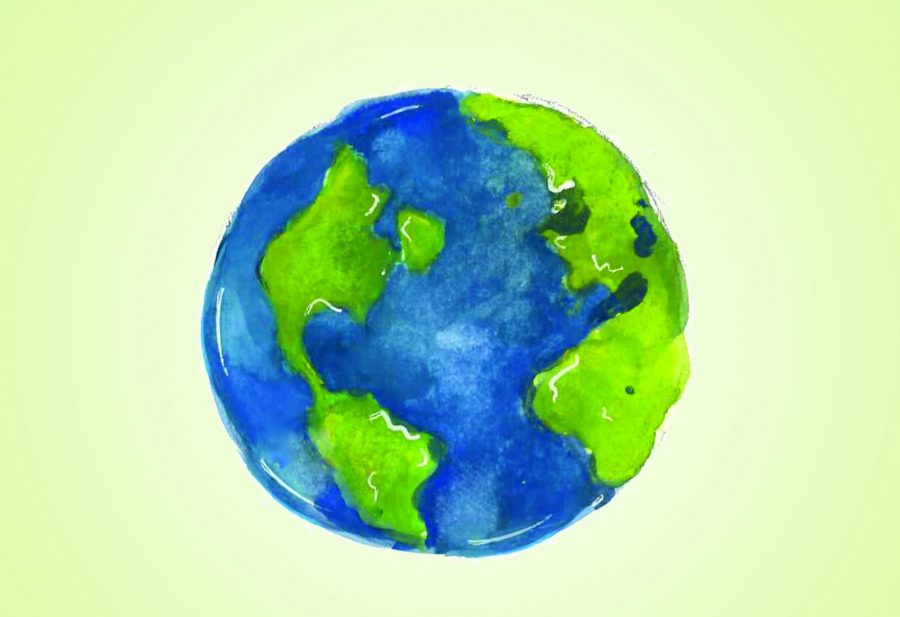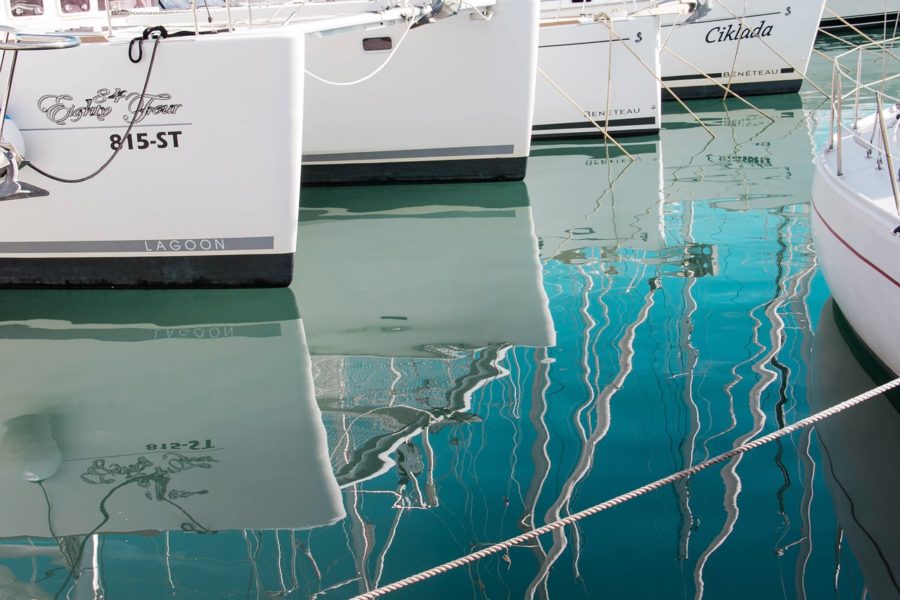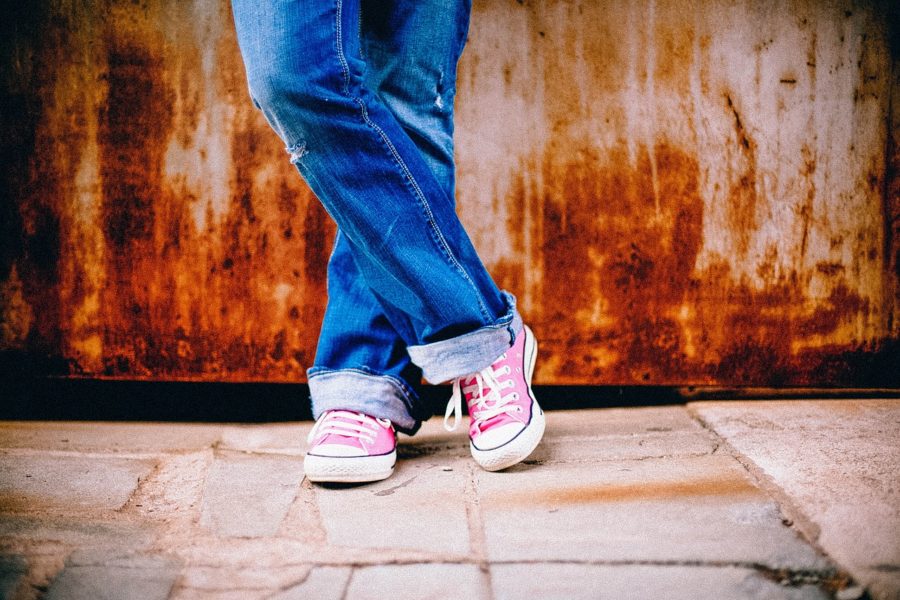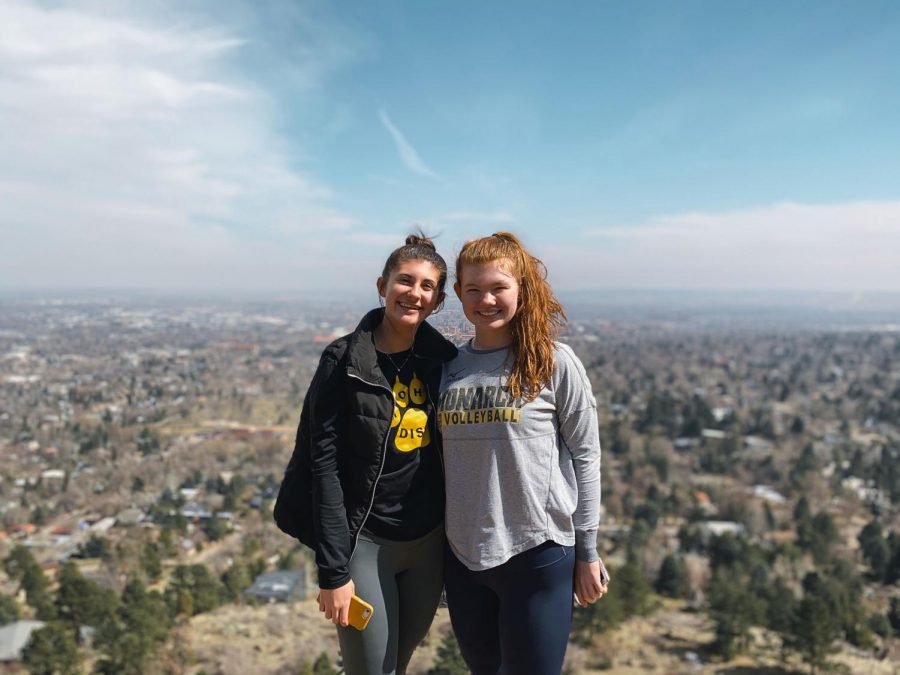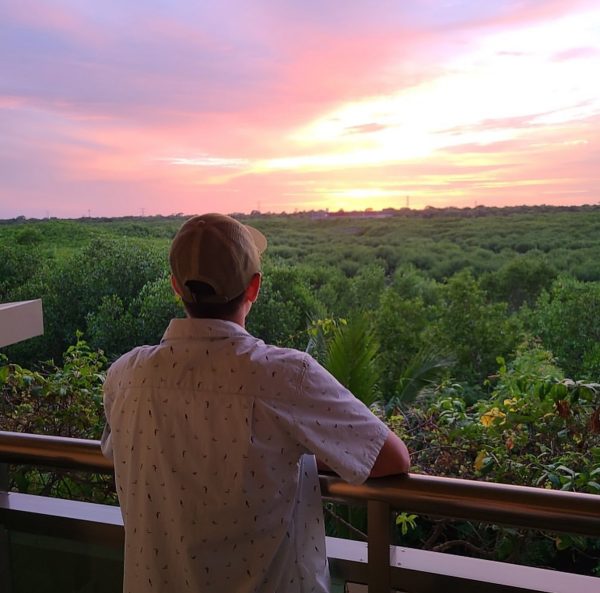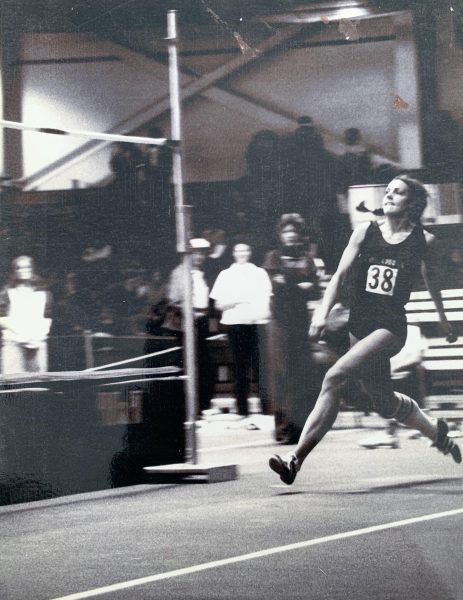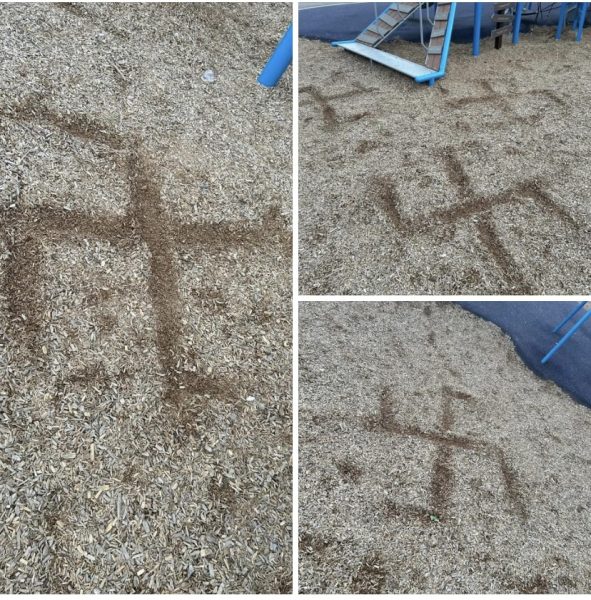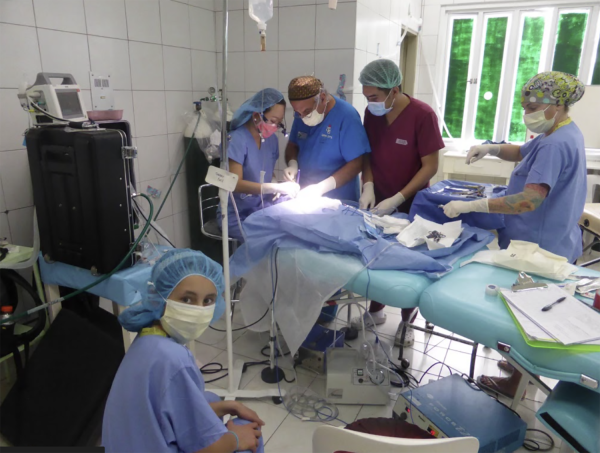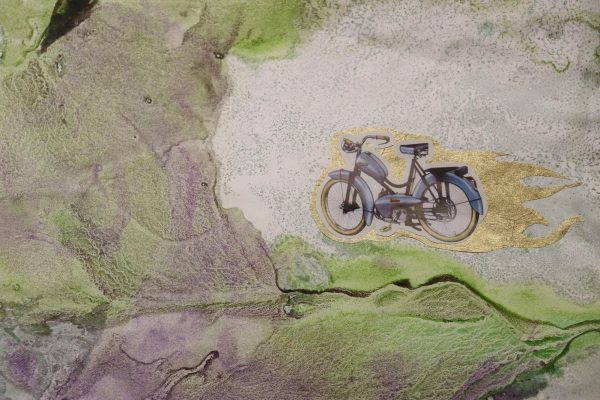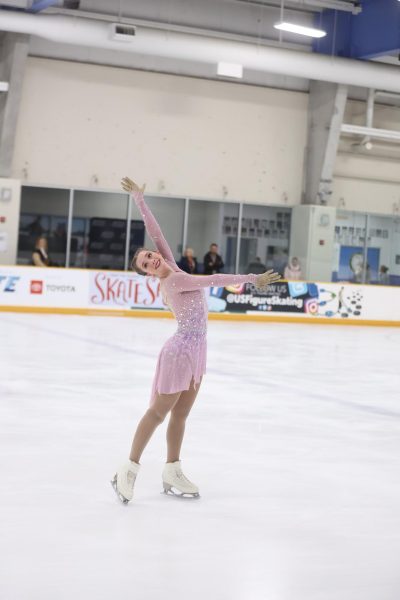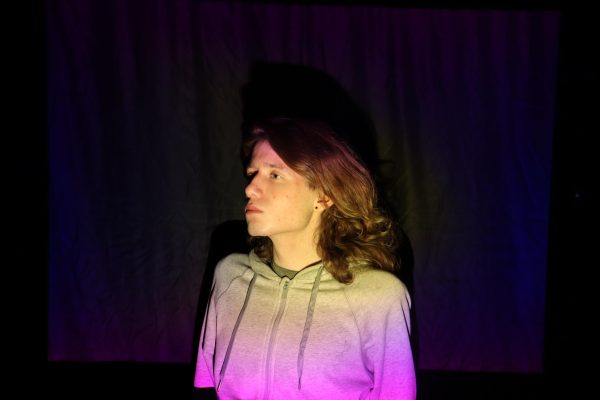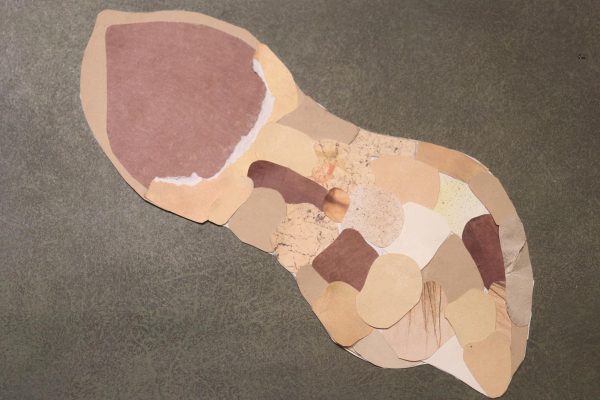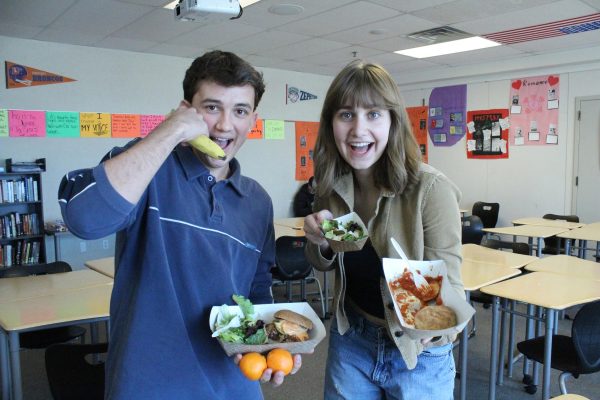Almost sisters
Foreign exchange program brings two girls together during a pandemic
The soft glow of a phone illuminates the face of Ginevra Rattalino as she lounges on her white and orange comforter. Moonlight pours in from the French doors to her right, shining softly across her room. Shadows hang on the dark side of her shelves, which rest on the violet southern wall.
Her desk stands to her left with a string of pictures hung above it—pictures of friends and family. Posters and paintings pepper the rest of her white walls, and the shelves are topped with candles, small boxes, even a small globe. She stares down at her phone, fingers rapidly flying across the screen, texting a stranger from across the Atlantic. Fortunately, the girl she’s messaging won’t be a stranger for much longer.
Rattalino is going to meet her in America, and she couldn’t be more excited.
Rattalino, from Busca, Italy, came to Colorado last year as an exchange student.
She stayed with Kaelan Norgard ‘22.
“When you decide to become an exchange student, you have to apply to an agency in Italy, and in the US, as well,” Rattalino said. “So then you have to fill in many documents. You have to write a letter to a general family that could host you. And then they’re going to send everything to the families in the US, and they’re going to choose you. So, the family of this student chose me.”
Norgard’s introduction to the foreign exchange program started at the beginning of the 2019-2020 school year.
“I am an only child, and when the opportunity came to host an exchange student we were thinking about it,” she said. “When we were looking through all of the host applicants we saw Ginevra and instantly knew that we were going to love her.”
Rattalino and Norgard each had their concerns about being thrown into living—and sharing everything—with a stranger.
“With Kaelan at the beginning, we’re both only children, which was really hard because we had to share our spaces. For example, the bathroom. We were used to doing things alone, so we kind of had to start doing things together. But then after I think the first month, we bonded and everything went well,” Rattalino said.
Norgard shared similar concerns. “I was nervous and excited,” she said. “I knew that it was going to be hard for both of us at the start because we were both only children, but I also knew that we were going to make so many memories.”
As nervous as the pair were before meeting each other, the friendship was instant. The Norgard family waited in anticipation at the airport, clutching a sign, ready to welcome Rattalino to their home.
“She fit right into our family,” Norgard said. “We all loved doing the same things so we never had a disagreement on what we wanted to do.
Rattalino’s love for Norgard and the US grew more and more throughout her stay.
“I loved it. I had high expectations of America,” she said. “Compared to [Italy], it’s like the ‘free land.’ So everyone that goes to America has a high expectation of all the parties and the school system and everything.”
Norgard and Rattalino share fond memories of spending holidays together, going to swim practices, driving to Flagstaff, playing ping pong, hiking in the Rocky Mountains, and more.
“I was part of the swim team,” Rattalino said. “We went to La Jolla for a training trip in the preseason, which was one of the most fun things because I got to know many girls, many friends. And I went to California, which was kind of like my dream.”
As Norgard and Rattalino spent months living, going to school, and playing sports together, their friendship developed into a sisterhood. The two girls, used to being only children, had suddenly formed an unbreakable bond.
And then the world was put on pause.
A pandemic strikes
Hundreds of official emails and frenetic group texts. In mid March, the COVID-19 pandemic finally reached the United States. Events were cancelled and schools closed, and Norgard and Rattalino found themselves in lockdown.
Unfortunately for Rattalino, Italy had been locked down prior to this. She was stuck.
“I missed when it started in March and April, which were the hardest months,” said Rattalino. “People wouldn’t go out, they had to stay home all day. And they could only go to the hospital to see the doctor or go to the grocery store, but just one person in the family. And they couldn’t go to different regions. So that was really a nightmare for them. And, of course, all the students went online and so that was really hard.”
Although Rattalino was isolated from the horrors of the virus in Italy, she was also isolated from her family.
“I was worried for my family and all the people I care about. I couldn’t do anything for them, so I felt helpless,” she said. “I was texting and calling them much more to make sure they were all fine. I thought about coming back, but it would’ve been actually worse and dangerous for me to go to the airport and on a plane because of the coronavirus.
“My parents told me not to worry, that they were fine and wanted me to stay in the US and finish my exchange year,” she said.
In spite of the situation, the two made the best out of it. Norgard says that the most memorable thing they did together was “during quarantine [they] got this new ping pong table and would just play for hours and got to really know each other on a deeper level.”
Sooner than they had intended, the Norgard family had to send Rattalino home in late May.
“It was really sad when she left. I missed everything about her, and I felt really lonely when she left. It took awhile for things to get back to normal.”
Since her quarantine, Rattalino returned to school in September.
“We’re going in person, but it’s not the same as it was. We, of course, can’t stay near each other. We can’t do the same things as before.
“I’ve been [in] the US when we had to stay home because of the coronavirus so going back to school, it’s so weird.”
She and Norgard share similar thoughts on the situation in the United States.
“I think we would be able to go back to school because Italy had a mandatory lockdown for a while and really handled the situation well. We would probably be going back to school now,” Norgard said.
Life after America
While Rattalino returned to in-person schooling in September, she is still unsure of how long that will last. “There are new cases, and they’re growing every day more and more,” she said. “So, for example here, we’re really worried because we don’t think we’re going to go to in-person for more than one month.”
Now Kaelen sits in her own room, reclining in the bean bag chair by her bed. Her blue-ish purple walls encompass her, adorned with a little calendar and a mirror.
She grips her phone in her hands and types at lightning speed, texting someone who is no longer a stranger from across the Atlantic.
Deep down she knows that soon, she’ll see her sister again.

